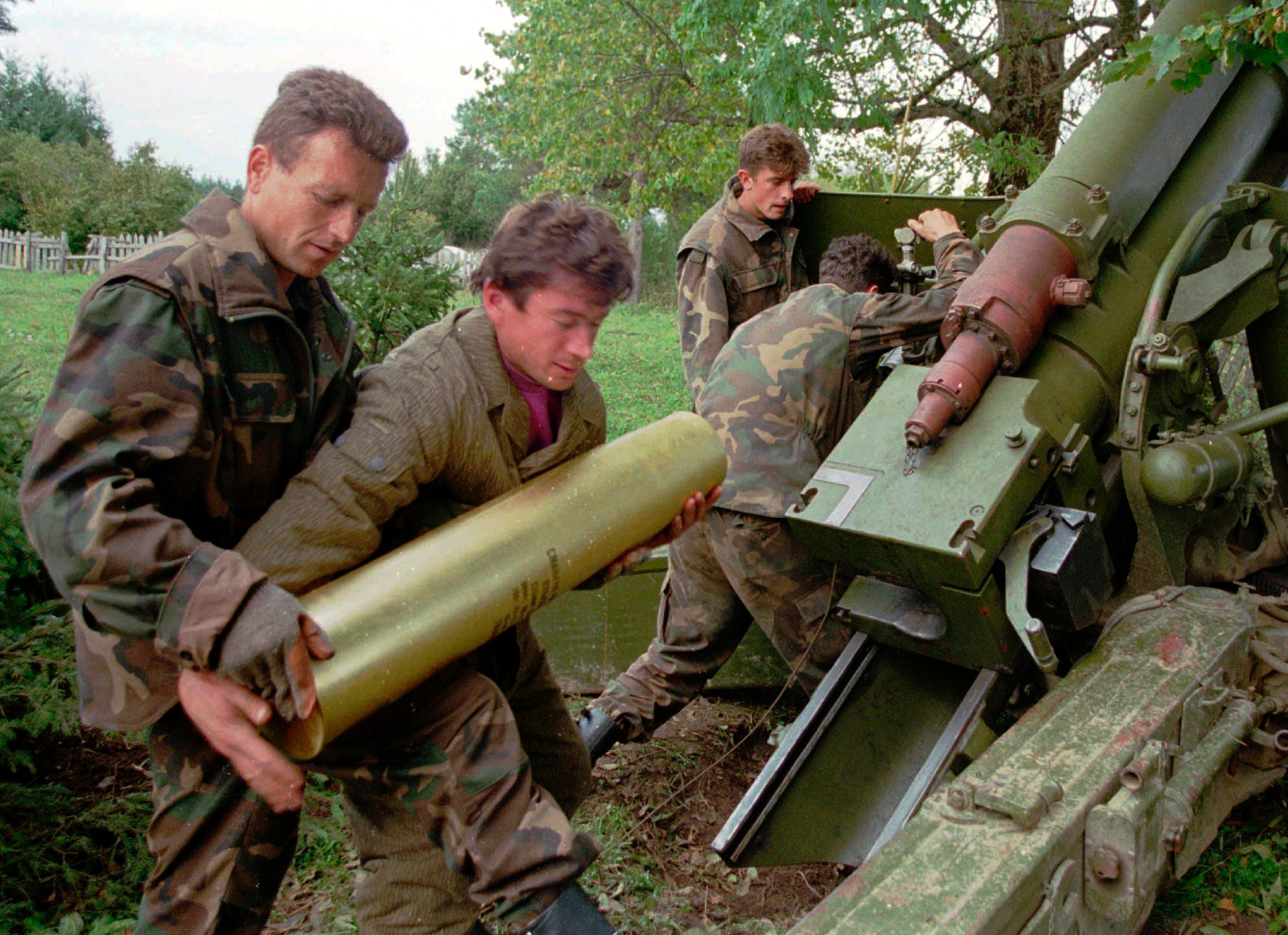EU urges reforms in Bosnia on 25th anniversary of peace deal
The European Union’s foreign policy chief has used the 25th anniversary of the peace agreement that ended the Bosnian War to urge Bosnia’s political leaders to overcome their persistent ethnic divisions and prepare their nation to join the EU fold

Your support helps us to tell the story
From reproductive rights to climate change to Big Tech, The Independent is on the ground when the story is developing. Whether it's investigating the financials of Elon Musk's pro-Trump PAC or producing our latest documentary, 'The A Word', which shines a light on the American women fighting for reproductive rights, we know how important it is to parse out the facts from the messaging.
At such a critical moment in US history, we need reporters on the ground. Your donation allows us to keep sending journalists to speak to both sides of the story.
The Independent is trusted by Americans across the entire political spectrum. And unlike many other quality news outlets, we choose not to lock Americans out of our reporting and analysis with paywalls. We believe quality journalism should be available to everyone, paid for by those who can afford it.
Your support makes all the difference.The European Union's foreign policy chief used the 25th anniversary of the peace agreement that ended the Bosnian War to urge Bosnia's political leaders to overcome their persistent ethnic divisions and prepare their nation to join the EU fold.
“We have to commemorate the past, but we have to look to the future,” EU foreign policy chief Josep Borrell said during a visit to Sarajevo for Saturday's anniversary, adding that the U.S.-brokered peace agreement for Bosnia concluded “one of the most shameful episodes in the modern history of Europe.”
The peace agreement, initialed at a U.S. Air Force base outside Dayton, Ohio on Nov. 21, 2015 and formally signed in Paris a few weeks later, ended the 44-month war in which Bosnia's three main ethnic factions — Muslim Bosniaks, Catholic Croats and Orthodox Christian Serbs — fought for control after the break-up of Yugoslavia.
Over 100,000 people were killed during the war, most of them Bosniaks, and upward of 2 million, or over half of Bosnia's population, were driven from their homes during the conflict.
While it stopped the bloodshed, the peace agreement formalized the ethnic divisions in Bosnia by establishing a complicated and fragmented state structure linked by weak joint institutions. Over the years, the country’s complex administrative system has allowed its ethno-nationalist elites to take full control of all levers of government and plunder public coffers with impunity while engaging in the same arguments that led to the war.
The European Union accepted Bosnia’s membership application in 2016, but its government has failed to make the deep structural reforms required before the country can move forward with the process of joining the EU. The bloc expects to see changes in how Bosnia's judiciary and economy are run, intensified efforts to fight corruption, the safeguarding of human rights, among other reforms.
The EU priorities are largely shared by Bosnia’s citizens, but continue to be sidelined by their ethnic leaders under the cover of nationalist rhetoric.
After meeting with members of the country’s tripartite presidency, Borrell said Bosnia’s “future is European” but that in order to get there “authorities must step up their efforts to deliver on the reform priorities.”